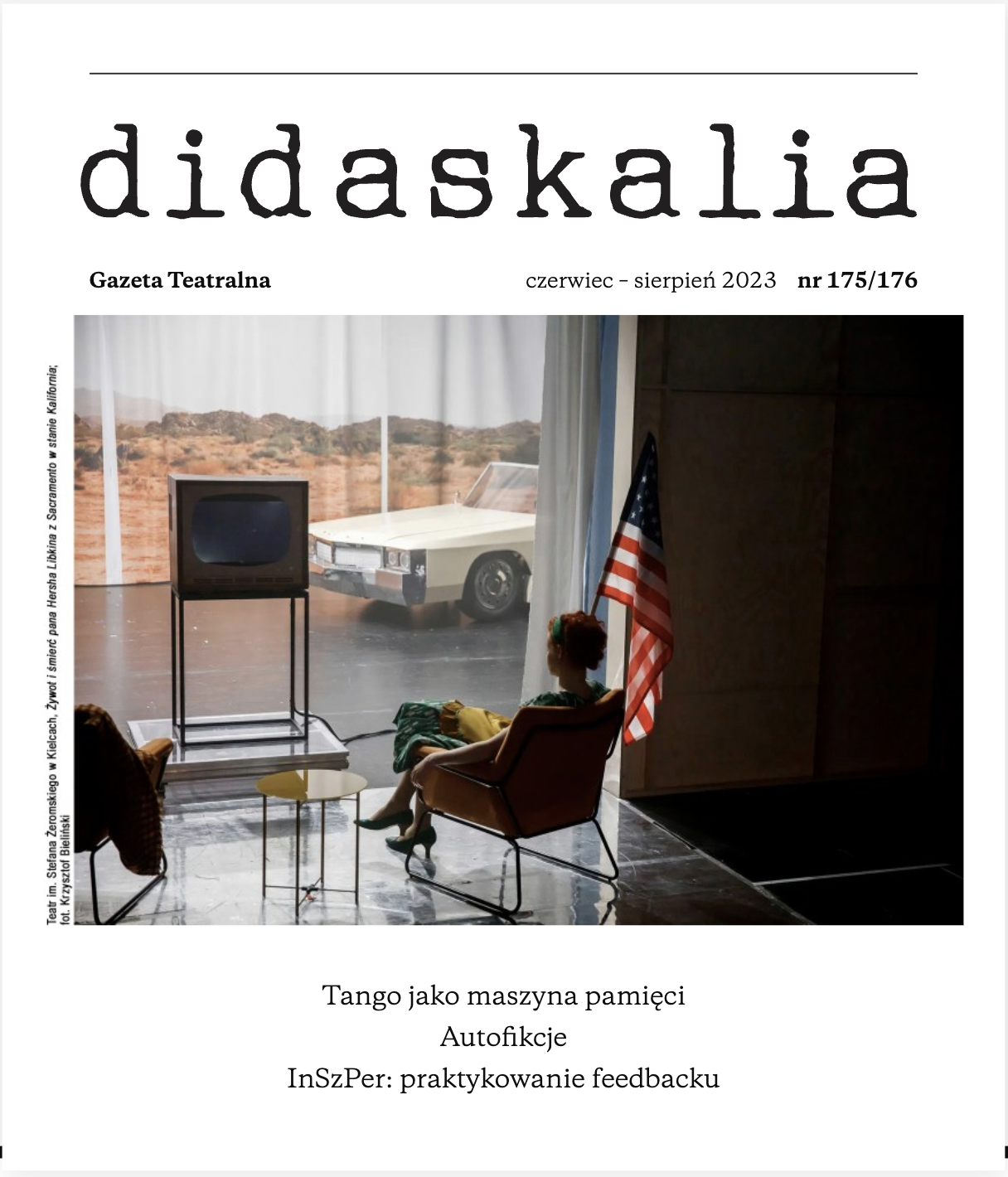„Nowa kobieta” i eugenika w rewolucyjnej retoryce („Chcę mieć dziecko!” Siergieja Trietjakowa, 1926-1928)
‘The New Woman’ and eugenics in revolutionary rhetoric (‘I Want a Baby’ by Sergei Tretyakov, 1926-1928)
Author(s): Katarzyna OsińskaSubject(s): Theatre, Dance, Performing Arts, Fine Arts / Performing Arts
Published by: Instytut im. Jerzego Grotowskiego
Keywords: Sergei Tretyakov; I Want a Baby; The New Woman; eugenics; Asja Lācis
Summary/Abstract: This article discusses Sergei Tretyakov’s drama I Want a Baby in a broad historical context. At the centre of the drama the writer placed a female protagonist who is, according to the author of the article, a variant of the concept of the ‘new woman’, an interpretation of which was presented by Aleksandra Kołłontaj (in her articles of 1913 and 1919). A summary of Kołłontaj’s views made it possible to extract from them the problems taken up by Tretyakov, i.e. the position of women in society, motherhood, the family, the organisation of the childcare system in the post-revolutionary reality. The heroine of Tretyakov’s play wants to give birth to a child, but does not want to start a family. She chooses a candidate for the father herself, with the proviso that he must be healthy and have a proletarian class background. ‘The New Woman’ in Tretyakov’s rendition is committed to laying the foundations of a healthy society, and eugenics is meant to help in this.The article shows the reasons why the heroine of the drama is not accepted by her environment (in the play itself) and also arouses opposition from the critics (as a result of which, Tretyakov’s work was not printed and did not live to see a stage or film production). Confronting her character with old ideas about the family, Tretyakov points out the obstacles to the fulfilment of the revolutionary ideas. To this end, light was shed on the idea of the new family as construed by Lev Trotsky and on Aron Zalkind’s views on the sexual education of the proletariat. The heroine of the play was confronted with the image of the ‘new woman’ propagated in society and with the real-life communist activist Asja Lācis. Also addressed was the blurring of gender boundaries in the development of the idea of the new man. The numerous contradictions that the play abounds with make it difficult to decide whether Tretyakov believed in the effectiveness of biological control of society combined with the idea of education by institutions, or whether he wanted to show the dangers of social experiment.
Journal: Didaskalia. Gazeta Teatralna
- Issue Year: 2023
- Issue No: 175-176
- Page Range: 60-93
- Page Count: 34
- Language: Polish

